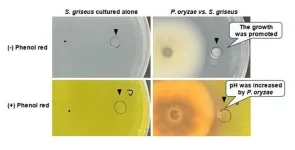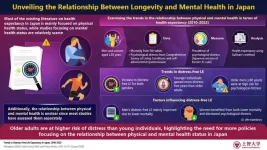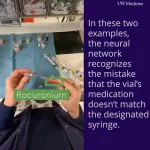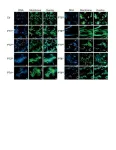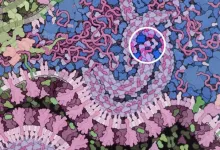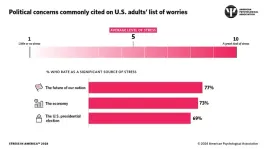In the world of agriculture, rice is a staple food for more than half of the global population, making its cultivation crucial for food security. However, the rice blast fungus Pyricularia oryzae (syn. Magnaporthe oryzae) poses a significant threat to rice crops, causing extensive damage and leading to substantial yield losses. Traditional methods of controlling this pathogen often rely on chemical fungicides, which can have detrimental environmental impacts and contribute to the development of resistant strains. Therefore, researchers are increasingly exploring alternative strategies that leverage natural microbial interactions to promote plant health and manage diseases more sustainably.
In a recent study led by Assistant Professor Yuuki Furuyama from the Department of Applied Biological Science at Tokyo University of Science (TUS), a team of researchers aimed to investigate the relationship between P. oryzae and the beneficial soil bacterium Streptomyces griseus. The research team included Ms. Risa Sugiura, Prof. Kouji Kuramochi, Prof. Takashi Kamakura, and Dr. Takayuki Arazoe, all from TUS, as well as Dr. Takayuki Motoyama from the Institute of Physical and Chemical Research and Dr. Hiroyuki Osada from the Institute of Microbial Chemistry. Their study was published on 23 September 2024 in Environmental Microbiology Reports.
“While extensive research has been conducted on how rice blast fungi infect their host rice plants, many aspects of their life cycle remain poorly understood. Our study aims to shed light on the interactions between rice blast fungi and other microorganisms in the soil, exploring the crucial part of their life cycle beyond the infection process,” explains Dr. Furuyama. To investigate these interactions, the team conducted a series of experiments involving cocultures of P. oryzae and S. griseus. They measured the pH changes in the growth medium and observed the effects on S. griseus growth under various conditions.
Their findings revealed that the presence of P. oryzae significantly increased the pH of the medium, which, in turn, promoted the growth of S. griseus. Notably, this growth enhancement was independent of direct contact between the two microorganisms, suggesting that P. oryzae produced non-volatile alkaline compounds responsible for this effect.
The study also highlighted that, other pathogenic fungi, such as Fusarium oxysporum and Cordyceps tenuipes, did not induce similar growth in S. griseus, indicating that the observed interaction is specific to P. oryzae. Additionally, the researchers ruled out ammonia as the compound responsible for pH increase, leading them to propose that polyamine produced by P. oryzae might be the active growth-inducing agent.
The discovery of this unique microbial interaction has significant implications for the development of sustainable agricultural practices. S. griseus is known for its ability to produce antibiotics, which can suppress the growth of pathogenic microorganisms. By promoting the growth of S. griseus, P. oryzae may inadvertently create conditions that could be harnessed to control its own spread. “Our findings suggest that S. griseus could be used as a biocontrol agent in rice fields, offering an alternative to chemical fungicides,” says Dr. Furuyama. “If we can enhance the growth of S. griseus in rice paddies, we may be able to reduce the impact of rice blast in an environmentally friendly way,” adds Dr. Furuyama.
Additionally, the study offers valuable insights into the ecological role of P. oryzae, indicating that this fungus may influence the composition and dynamics of microbial communities in the soil. The researchers propose that their findings could have broader implications for our understanding of how pH modulation affects microbial interactions, paving the way for the development of innovative biocontrol strategies for managing other plant diseases as well.
With this groundbreaking discovery, the team has taken a crucial step toward more sustainable agricultural practices. The potential to harness the power of microbial interactions to combat rice blast could revolutionize the way we approach disease management in rice crops, offering hope for a future with less reliance on harmful chemical agents.
***
Reference
Title of original paper: Pyricularia oryzae enhances Streptomyces griseus growth via non-volatile alkaline metabolites
Journal: Environmental Microbiology Reports
DOI: https://doi.org/10.1111/1758-2229.70012
Authors:
Risa Sugiura1, Takayuki Arazoe1, Takayuki Motoyama2, Hiroyuki Osada3, Takashi Kamakura1, Kouji Kuramochi1, Yuuki Furuyama1
Affiliations: 1Department of Applied Biological Science, Tokyo University of Science, Japan
2Plant Immunity Research Group, RIKEN Center for Sustainable Resource Science, Japan
3Institute of Microbial Chemistry, Japan
About The Tokyo University of Science
Tokyo University of Science (TUS) is a well-known and respected university, and the largest science-specialized private research university in Japan, with four campuses in central Tokyo and its suburbs and in Hokkaido. Established in 1881, the university has continually contributed to Japan's development in science through inculcating the love for science in researchers, technicians, and educators.
With a mission of “Creating science and technology for the harmonious development of nature, human beings, and society," TUS has undertaken a wide range of research from basic to applied science. TUS has embraced a multidisciplinary approach to research and undertaken intensive study in some of today's most vital fields. TUS is a meritocracy where the best in science is recognized and nurtured. It is the only private university in Japan that has produced a Nobel Prize winner and the only private university in Asia to produce Nobel Prize winners within the natural sciences field.
Website: https://www.tus.ac.jp/en/mediarelations/
About Assistant Professor Yuuki Furuyama from Tokyo University of Science
Yuuki Furuyama received his PhD from Tokyo University of Science's Department of Applied Biological Sciences in 2018 and currently serves as an Assistant Professor. His research expertise includes applied microbiology, natural products chemistry, and chemical biology. Dr. Furuyama has published eight peer-reviewed articles since 2021, showcasing his significant contributions in this field. His achievements earned him the Biotech Grand Prix 2023 Rohto Award, recognizing his substantial impact on biotechnology.
Funding information
This study was supported by the 50th Research Grant from the Japan Society for Bioscience, Biotechnology, and Agrochemistry.
END
